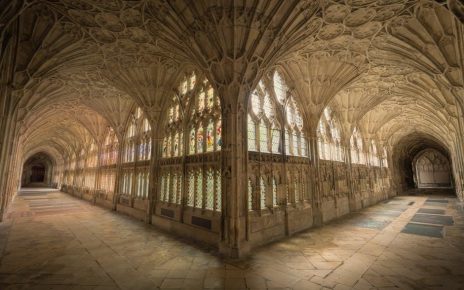Biblical numerology uncovers the spiritual significance of numbers in Scripture, revealing deeper truths about God’s nature and plan. Each number carries symbolic meaning, enriching our understanding of divine messages.
1.1 Definition and Significance of Numbers in Scripture
Biblical numerology is the study of the symbolic meaning of numbers in Scripture. Numbers in the Bible are not merely numerical values but carry deep spiritual significance, often revealing divine truths and patterns. The use of numbers is intentional, conveying specific themes and messages that enrich our understanding of God’s Word. For instance, the number 1 signifies unity and primacy, while 3 represents the Trinity and divine perfection. Similarly, 4 is associated with creation and the material world, and 7 symbolizes spiritual perfection. These numerical patterns are woven throughout the Bible, from creation accounts to prophetic visions, offering insights into God’s nature and plan. Understanding the significance of numbers enhances biblical interpretation, providing a deeper connection to the divine message embedded in Scripture.
1.2 The Importance of Studying Biblical Numerology
Studying biblical numerology offers profound insights into the divine structure and intent behind Scripture. Numbers in the Bible are not random; they carry symbolic meanings that reveal deeper spiritual truths. By understanding these numerical patterns, believers can uncover hidden layers of meaning in biblical texts, enhancing their interpretation and application of God’s Word. Numerology also highlights the consistency and precision of divine communication, showcasing God’s orderly nature. It provides a framework for understanding prophetic symbolism, such as the significance of numbers like 7, 12, and 40, which recur throughout the Bible. Ultimately, exploring biblical numerology deepens one’s faith, fostering a greater appreciation for the richness and complexity of Scripture. It serves as a powerful tool for spiritual growth and a deeper connection to God’s divine plan.

Key Numbers and Their Meanings
Biblical numbers like 1, 3, 7, 12, and 40 hold symbolic significance, representing unity, resurrection, spiritual perfection, divine order, and trials, respectively, in Scripture.
2.1 Number 1: Unity and Primacy
The number 1 in the Bible symbolizes unity, representing the oneness and primacy of God. It signifies the beginning of creation (Gen. 1:1) and the singular focus on God in the Shema (Deut. 6:4). This number emphasizes monotheism, highlighting God as the sole Creator and Ruler of the universe. It also reflects the unity of God’s nature, as seen in the Trinity—Father, Son, and Holy Spirit acting as one. The number 1 underscores the uniqueness of Christ, who is the firstborn of all creation (Col. 1:15) and the head of the church. In biblical numerology, this number establishes the foundation for understanding divine order and the singleness of purpose in following God. Its prominence in key biblical events and doctrines reinforces its spiritual significance as a symbol of unity and primacy.
2.2 Number 2: Union, Division, and Witnessing
The number 2 in the Bible represents union, division, and the principle of witnessing. It signifies the bringing together of two entities, such as the union of man and woman in marriage (Gen. 2:24). Division is also a key theme, as seen in the separation of light from darkness on the second day of creation (Gen. 1:4). The number 2 is closely tied to the concept of testimony and validation, as two witnesses are required to establish truth (Deut. 17:6, Matt. 18:16). Jesus often sent His disciples out in pairs, emphasizing the strength of unity in ministry. This number highlights duality and complementarity, reflecting the balance between unity and distinction in God’s creation. Its recurring presence in legal and spiritual contexts underscores its role in establishing order and authenticity in both human and divine matters.
2.3 Number 3: Trinity, Perfection, and Resurrection
The number 3 holds profound significance in the Bible, symbolizing the Trinity, divine perfection, and resurrection. It is deeply rooted in the nature of God, as seen in the Father, Son, and Holy Spirit. Jesus’ resurrection on the third day underscores its association with new life and victory over death. The number also represents completeness, as many biblical events unfold in sets of three, such as Jonah’s three days in the fish and Peter’s three denials of Christ. Additionally, the veil of the temple was torn in two from top to bottom at the ninth hour (3:00 PM), signifying divine judgment and grace. The repetition of three in Scripture reinforces its role in emphasizing divine action, perfection, and the fulfillment of God’s plan. This number is a cornerstone in understanding biblical numerology and its spiritual implications.
2.4 Number 4: Earth, Material Creation, and Human Weakness
In biblical numerology, the number 4 is closely associated with the earth and material creation. On the fourth day of creation, God completed the material world, establishing the sun, moon, and stars to govern the earth (Genesis 1:14-19). This number symbolizes the physical realm and humanity’s connection to it. It also represents human weakness, as seen in the 40 days of rain during Noah’s flood, symbolizing judgment and purification. Moses spent 40 years in the wilderness before leading Israel, and Jesus fasted for 40 days, signifying spiritual preparation and testing. The number 4 underscores the earthly and temporal nature of human existence, contrasting with the spiritual realm. It highlights God’s sovereignty over creation and the necessity of enduring trials to refine faith and character, reflecting both the frailty of humanity and the divine plan for redemption.
2.5 Number 7: Spiritual Perfection and Completeness
The number 7 is one of the most significant numbers in biblical numerology, symbolizing spiritual perfection and completeness. It appears frequently in Scripture, often marking divine order or fulfillment. The creation week, with God resting on the seventh day, establishes 7 as a holy number, representing completion and sanctification (Genesis 2:2-3). Jesus performed seven miracles in John’s Gospel, and there are seven churches, seven seals, and seven trumpets in Revelation, emphasizing God’s perfect plan. The seventh day of rest is a recurring theme, pointing to spiritual rejuvenation and trust in God’s sovereignty. The number 7 also represents fullness, as seen in the sevenfold Spirit of God (Revelation 1:4) and the seven deadly sins, highlighting human imperfection. This number underscores divine order, completeness, and the ultimate fulfillment of God’s purposes in both heaven and earth.
2.6 Number 8: New Beginnings and Resurrection
The number 8 in biblical numerology symbolizes new beginnings, resurrection, and divine renewal. It often represents a fresh start, as seen in the resurrection of Jesus Christ, which occurred on the first day of the week—a day that can be viewed as the eighth day in biblical counting. This number also signifies abundance and superabundance, as it exceeds the perfection represented by the number 7, adding a new layer of divine completion. In Genesis, only eight people were saved through the ark during the flood, marking a new beginning for humanity. Additionally, circumcision was performed on the eighth day, symbolizing purification and entry into covenant life. The number 8 thus embodies the idea of moving beyond old cycles into new life, reflecting God’s redemptive plan and the promise of eternal renewal.

2.7 Number 12: Divine Order and Government
The number 12 is deeply symbolic in the Bible, representing divine order, completeness, and governance. It frequently appears in contexts related to organization and structure, such as the 12 tribes of Israel, the 12 apostles of Jesus, and the 12 gates of the New Jerusalem in Revelation. These instances highlight God’s plan for order and administration in both the earthly and heavenly realms. The number 12 also signifies perfection and divine arrangement, as seen in the 12 loaves of bread placed before the Ark of the Covenant and the 12 stones used in the breastplate of the high priest. Furthermore, multiples of 12, such as 144,000 in Revelation, emphasize the completeness of God’s people under His governance. Thus, the number 12 reflects the harmony and precision of God’s design in managing His creation and His people.
2.8 Number 40: Trials, Testing, and Dedication
The number 40 in the Bible is often associated with trials, testing, and dedication, symbolizing a period of preparation or refinement under God’s providence. It appears in key biblical events, such as the 40 days of rain during Noah’s flood, the 40 years the Israelites wandered in the wilderness, and Jesus’ 40-day fast in the wilderness before beginning His ministry. Each instance signifies a time of purification, testing of faith, and ultimate dedication to God’s will. The number 40 also represents completeness in divine dealings, as seen in Elijah’s 40-day journey to Mount Horeb and the 40 lashes minus one (Deuteronomy 25:3) as a limit to human judgment. Through these examples, the number 40 underscores the theme of enduring trials to emerge strengthened and aligned with God’s purpose.

Colors and Their Connection to Numbers in the Bible
Colors in Scripture are deeply intertwined with numbers, symbolizing spiritual truths and divine attributes. Red represents flesh and Christ’s blood, blue signifies God’s Word and healing, while yellow symbolizes trials and testing, reflecting the numeric patterns of biblical numerology.
3.1 Red: Flesh and the Blood of Christ
Red holds profound significance in biblical symbolism, often representing flesh and the blood of Christ. It signifies life, sacrifice, and atonement, as seen in the shedding of Christ’s blood for humanity’s redemption. The color red is deeply connected to the number 30, which symbolizes dedication or the blood of Christ. In Leviticus, red heifers were used in purification rituals, highlighting its role in cleansing and sanctification. Red also reflects human weakness and the frailty of earthly life, contrasting with the divine perfection of God. This color is intricately linked to numbers that emphasize sacrifice, redemption, and the fleshly nature of humanity, underscoring its importance in understanding biblical numerology and symbolism.
3.2 Blue: The Word and Healing Power of God
Blue is a sacred color in biblical symbolism, representing the Word of God and His healing power. It signifies divine revelation, truth, and the limitless expanse of God’s wisdom. In Exodus, blue was used in the garments of priests and the tabernacle, symbolizing heaven and God’s presence. The number 10, often linked to blue, represents the Word of God and divine order. Blue also carries a healing connotation, as seen in the Israelites’ practice of wearing blue tassels to remind them of God’s commandments and spiritual renewal. This color is deeply connected to numbers associated with divine communication and restoration, emphasizing its role in reflecting God’s truth and healing power throughout Scripture.
3.3 Yellow: Trials and Testing
Yellow, in biblical symbolism, is often associated with trials, testing, and refinement. It represents the process through which believers are purified and strengthened in their faith. This color is linked to the refining of precious metals, such as gold, which undergo intense heat to remove impurities. In Scripture, yellow symbolizes the fiery trials that believers endure, as mentioned in 1 Peter 1:7, where faith is tested and proven genuine. The number 40, often connected to yellow, signifies periods of testing and dedication, as seen in Israel’s wilderness journey. Yellow serves as a reminder of God’s faithfulness during difficult times, emphasizing growth and maturity through adversity. Its presence in biblical narratives highlights the transformative power of trials in the journey of faith.

Symbolism of Numbers in Revelation
Numbers in Revelation carry deep symbolic meanings, with 7 representing perfection, 12 signifying divine order, and 144,000 denoting God’s elect. The number 666 embodies evil, while 13 represents rebellion.
4.1 The Number 666: The Mark of the Beast
The number 666, known as the “Mark of the Beast,” holds profound symbolic significance in the Book of Revelation. It represents evil, imperfection, and humanity’s rebellion against God. In Revelation 13:18, the number is linked to the Antichrist, embodying ultimate opposition to divine authority. The triple repetition of 6 emphasizes its connection to sin and fallen humanity, as 6 is one less than 7, the number of divine perfection. Historically, this number has been interpreted as a symbol of spiritual warfare and the end-times struggle between good and evil. Its presence in Revelation serves as a warning against idolatry and allegiance to worldly powers. Despite its ominous connotations, 666 also highlights God’s sovereignty and the ultimate triumph of righteousness over evil.
4.2 The Number 144,000: The Elect of God
The number 144,000 is a significant figure in the Book of Revelation, representing the elect of God. It is composed of 12,000 sealed servants from each of the 12 tribes of Israel, symbolizing completeness and divine order. This number also reflects the unity between the Old Testament and the New Testament, as it ties the 12 tribes to the 12 apostles. The square root factors of 144,000 emphasize its connection to spiritual perfection and divine election. In Revelation, this number signifies those who are redeemed and sealed by God, protected during the end-times. It represents a remnant chosen by God, highlighting His faithfulness to His covenant people. The number also underscores the idea of completeness, as it is a multiple of 12, a number associated with divine government. This serves as a reassurance of God’s plan and the ultimate triumph of His people.

Practical Application of Biblical Numerology
Biblical numerology offers insights for personal reflection and spiritual growth, helping believers connect with God’s divine plan and deepen their faith through symbolic meanings in Scripture.
5.1 Understanding Spiritual Concepts Through Numbers
Numbers in the Bible are not just numerical values but carry profound spiritual significance, offering insights into divine truths and God’s character. By studying these numbers, believers can gain a deeper understanding of spiritual concepts such as unity, perfection, and resurrection. For instance, the number 1 symbolizes unity and primacy, reflecting God’s singularity and sovereignty. The number 3 is associated with the Trinity and resurrection, while the number 7 represents spiritual perfection and completeness. These numerical patterns reveal hidden meanings and reinforce theological themes, helping followers of Christ to connect with the deeper layers of Scripture. Through this lens, believers can uncover the symbolic language of the Bible, enriching their faith and fostering a more intimate relationship with God.
5.2 Applying Numerology to Everyday Faith
Applying biblical numerology to everyday faith enriches spiritual understanding and deepens one’s connection with God. By recognizing numerical patterns and their meanings, believers can discern divine messages in their lives. For instance, encountering the number 7 repeatedly may remind one of spiritual perfection, encouraging trust in God’s sovereignty. Similarly, the number 4, symbolizing creation, can inspire gratitude for God’s earthly provisions; This practice helps believers interpret life events through a biblical lens, fostering a greater sense of purpose and alignment with God’s plan. It also enhances prayer and meditation, as numbers can serve as reminders of specific scriptural truths. Ultimately, applying numerology to daily faith fosters a deeper appreciation for the intricate design of God’s Word and its relevance to everyday life.
Biblical numerology reveals the profound spiritual significance of numbers in Scripture, offering insights into God’s nature and plan. Studying these meanings enriches faith and deepens understanding of divine truths.
6.1 Summary of Key Points
Biblical numerology is a fascinating study that uncovers the spiritual significance of numbers in Scripture. Key numbers like 1, 3, 7, 8, 12, 40, and 666 hold profound meanings, such as unity, divine perfection, spiritual completeness, and judgment. Colors like red, blue, and yellow also symbolize important concepts, including the blood of Christ, God’s Word, and trials. These numbers and colors reveal God’s nature, plan, and divine order. Practical applications of biblical numerology deepen faith and provide insights into spiritual truths. By understanding these symbols, believers gain a richer appreciation for Scripture and its timeless messages.
6.2 The Deeper Meaning of Numbers in Scripture
The study of biblical numerology reveals that numbers in Scripture are not merely numerical values but carry profound spiritual and symbolic meanings. These numbers often represent divine truths, highlighting God’s nature, plan, and sovereignty. For instance, the number 7 signifies spiritual perfection and completeness, while 40 represents trials, testing, and dedication. Similarly, colors like red and blue symbolize the blood of Christ and God’s Word, respectively. By exploring these symbols, believers gain insights into biblical prophecy, typology, and the intricate design of God’s Word. Understanding the deeper meaning of numbers enriches one’s faith, offering a clearer picture of God’s divine order and purpose. This study invites believers to see beyond the literal text, uncovering the hidden treasures of Scripture.



